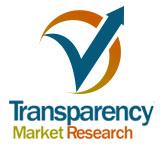Angiosarcomas Treatment Market - Future Trends and Forecast 2016 - 2024

Rare and clinically highly variable, Sarcoma is a type of cancer that originates from mesenchymal cells transformation. Sarcoma defines as the major tumors, such as bone, breast, skin, fats and soft tissues. One such rare type of soft tissue tumor is called as Angiosarcomas. This tumor begins to grow in the cells of a blood vessels and can occur in any part of body. Angiosarcoma tumors involve rapidly proliferating cancerous cells originated from endothelial or mesenchymal sources and develop blood filled channels. Angiosarcoma harbors is the worst prognosis among all sarcoma subtypes.
Request Free Sample of Research Report:
http://www.transparencymarketresearch.com/sample/sample.php?flag=B&rep_id=14942
Depending on the instigation of tumor, Angiosarcomas are classified as hemagiosarcoma (begin in blood vessels) and lymphangiosarcome (tumor begins in lymph vessels). The major causes of the disease are unknown, however, lymphederma is considered as a key propeller of the disease condition. In addition to this, frequent and long term exposure of the radiation is also considered as an important cause.
The major symptoms include skin infections; however, the deeply situated tumors may not show any distinct symptom of the disease. The latter condition worsens the situation and may be a fatal one. The diagnostic procedures mainly include CT, MRI and PET scan. In addition, biopsy procedure has proved its effectiveness in the disease diagnosis. This disease has a very low incidence rate of 2-3 per million people and also occurs in patients of breast cancer who have undergone radiation therapy.
Angiosarcoma treatment requires medical attention from a multidisciplinary medical team and includes oncologists, surgeons and other medical team. The disease is treated primarily with surgical intervention. Chemotherapy is also used due to high risk of local relapse and distant metastatic disease. However, chemotherapy and radiation therapy are critical for treating Angiosarcomas before and after surgery. The most common chemotherapeutic drug for treating Angiosarcomas includes doxorubicin.
However, combination therapy involving mesna, doxorubicin, and ifosfamide has also shown effectiveness against Angiosarcomas. There have been several attempts in last decade to develop drugs that target blood vessels growth stimulator VEGF and thereby cause shrinking of angiosarcomas. These drugs include bevacizumab, irinotecan, sildenafil, SU11248, BAY43-9006, and AMG706. Radiation therapy includes exposure of high power gamma and X-rays to irradiate the tumors.
In a recent research at University of North Carolina, researcher reported a monoclonal antibody targeted towards a protein known as SFRP2 found to inhibit growth of angiosarcoma. The study was initiated because SFRP2 acts as a potent stimulator of angiogenesis and it was therefore hypothesized that targeting SFRP2 could inhibit tumor growth. The study is still in very nascent stage and will enter into clinical trials provided the researchers obtain enough funding for their research. The major drivers of the market include steadily increasing prevalence of the disease.
Although the disease is considered as rare (less than 1 percent of the sarcoma diagnosed population), the prevalence is increasing steadily. This is anticipated to drive the market during forecast period 2014 – 2020. In addition, extensive R&D practices also fuels the market growth. A number of drugs, such as, AMG-386, sildenafil, and many others are under pipeline studies and expected to enter in the market in coming 5-10 years. A major restraint in developing specific drug for treating Angiosarcomas is the limited number of people on which the drug can be tested to confirm its safety and efficacy. Angiosarcomas are so rare accounting for only 1% of sarcomas which in turn account for only 1 percent of all kinds of cancer.
The major players operating in the global Angiosarcomas market include Pfizer, Inc., Genentech, Inc., Bayer Healthcare, Janssen Products, LP, Sanofi S.A., and Amgen, Inc.
About Us
Transparency Market Research (TMR) is a global market intelligence company providing business information reports and services. The company’s exclusive blend of quantitative forecasting and trend analysis provides forward-looking insight for thousands of decision makers. TMR’s experienced team of analysts, researchers, and consultants use proprietary data sources and various tools and techniques to gather and analyze information.
Comments